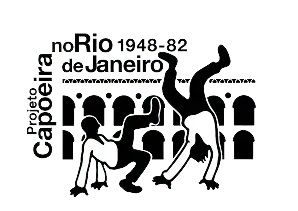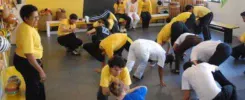By Rômulo Costa Mattos.

The construction of the memory about Sete Coroas, the most famous "criminal" of the First Republic
At the beginning of the 1920s, an anonymous dweller of the Favela hill and shanty town – now known as Morro da Providência – carried out an unusual mugging during a gala funeral. The quantity and the quality of the objects stolen in this action resulted in a nickname, by which in no time he would be known in the whole city of Rio de Janeiro: Seven Crowns. His audacious robberies made his trajectory leave the policial records and earn headlines in the crime pages of journalists, theatre stages and enter the work of writers and composers of popular music.”
Rômulo Costa Mattos, from the Pontifícia Universidade Católica (PUC), Rio de Janeiro, researched the history of Sete Coroas and was kind enough to make his article available for our website. For now we only have in Portuguese the text A Construção da Memória sobre Sete Coroas, the most famous “criminal” of the First Republic.


